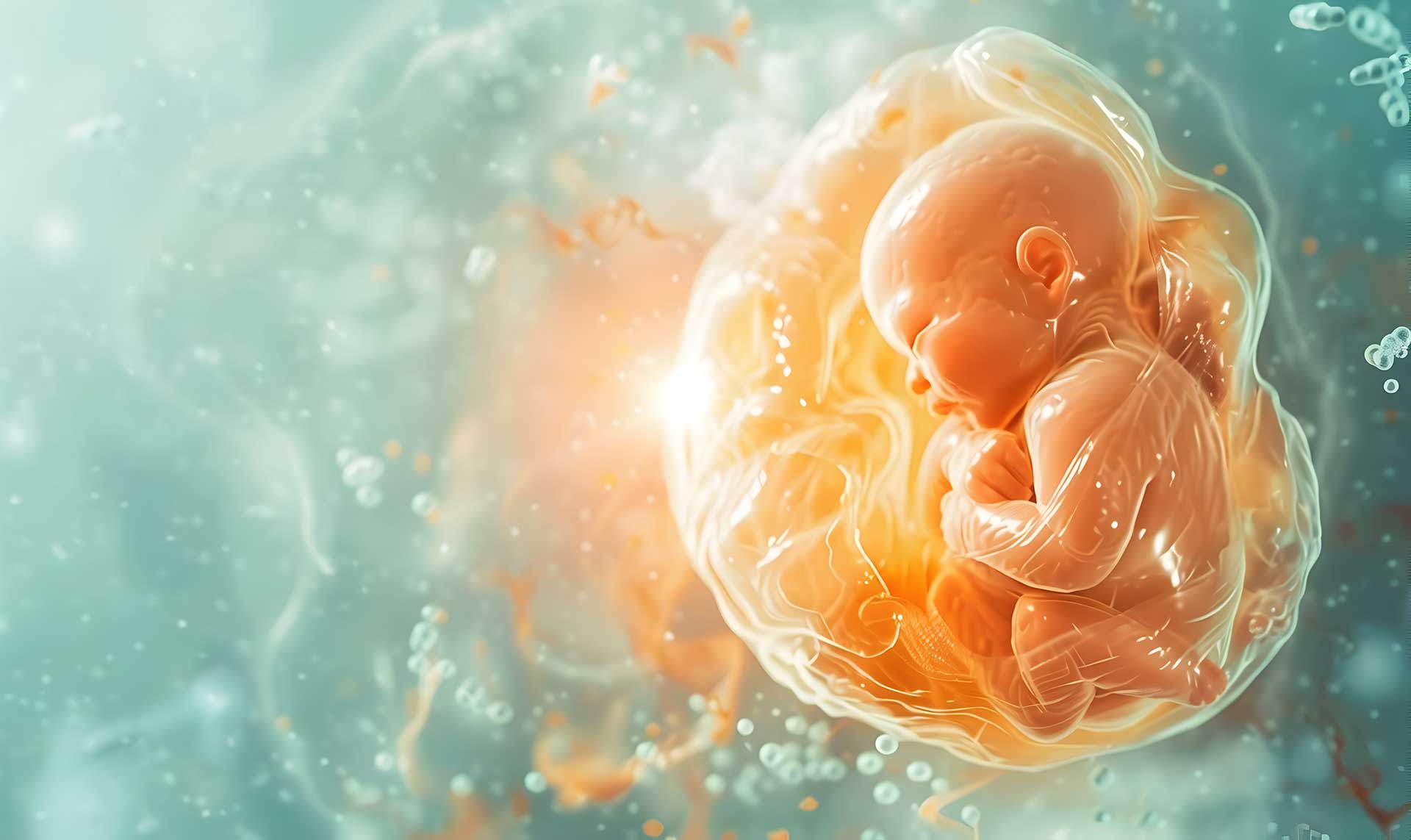
It would not be accurate to define obesity only as "body mass index higher than 30". The fact that it causes metabolic, orthopedic, cardiovascular and psychiatric problems, paves the way for many short and long-term diseases, especially type 2 diabetes, and reduces the life expectancy and quality of the individual should be emphasized more. The most important component in the treatment of obesity is nutrition and nutrition regulation. Regulating nutrition is extremely important to achieve a better level of health and comfort of life and to protect against chronic diseases. Nutrition, defined by the Turkish Language Association as "Getting the nutrients necessary for the body," and Diet, defined as "The diet implemented to protect or improve health"; They are actually much more complex issues than they appear. For this reason, just as we can only entrust a watch to a master who understands its intricacies; We should entrust health-related issues such as nutrition and diet, which are essential for the life of every individual, to experts.
“It is estimated that 22% of adult deaths and 15% of subsequent disability worldwide are related to dietary habits.”
Most people resort to many diets to reduce or maintain their body weight. Almost everyone is looking for ways to lose weight quickly and lose a lot of weight in a short time. A study conducted in America shows that approximately 60% of adults do their health-related research on the internet. If we look at the prevalence of social media and internet use today, we can say that accessing information only takes seconds. But at this point, the problem of "correct information" emerges. On an important issue like nutrition, what information can we trust? Nowadays, most people can change their diet by relying only on the suggestions they come across on the internet. But unfortunately, most of these recommendations circulating on social media are not based on scientific data. Popular diets are put on the market like a new model bag by people who are aware of the aesthetic concerns that have recently increased in society and people's weaknesses in achieving a better physique with less effort. At this point, it is very important to know where the correct information is found and to consult experts in the field.
Calorie restriction, without compromising the nutrients that are essential for our body; It is defined as a 20% to 40% reduction in calorie consumption. The purpose of a calorie-restricted diet is to improve a person's health, extend life, slow down the aging process, and prevent metabolic and age-related diseases. Calorie restriction can effectively reduce body weight and improve metabolic outcomes in those with and without obesity. Along with calorie restriction and good nutrition, the body reduces the production of reactive oxygen species, which helps extend life and delay aging-related diseases. It has been observed that reducing daily calorie intake can have positive results in patients with depression. Calorie restriction is receiving increasing attention due to its significant effects on the neuroendocrine system and emotional mood states. Both basic and clinical studies have shown that calorie restriction triggers metabolism, stress response formation, and nerve cell production. Calorie restriction may also be useful as a non-drug-dependent treatment method for those with cardiovascular disease.
“An effective calorie restrictive diet is one that does not cause hunger or nutrient deficiencies.”
On the other hand, studies show that self-prescribed calorie restriction diets affect the individual; It leads to problems such as eating disorders, low self-confidence and high depression. It also shows that it distorts the individual's body perception, causing him/her to dislike himself/herself physically. Therefore, whether calorie restriction is appropriate or not; The decision should be made by considering factors such as obesity, the presence of an eating disorder and other clinical conditions or their interactions.
“To define a personalized nutritional treatment, it is necessary to understand the needs and health status of individuals.”
These diets can be classified as low carb-high fat, low fat-high carb, very low calorie diets, and other diet methods used for weight loss. Very low calorie diets generally include diets where daily calorie intake is 800 or less. While some of these diets are based on solid foods, some are diets only in liquid form.
We can consider detox diets within the scope of low-calorie diets. Detox diets are short-term diets planned to remove toxins from the body, optimize health and increase weight loss. The term "toxin" in the expression "detoxification" means "removing toxins"; It indicates synthetic chemicals, heavy metals, processed foods, environmental pollutants and other harmful substances brought by modernization. Detoxification; It is a process in which metabolites and chemical substances are removed from the body through urine, feces, sebum (the secretion of the sebaceous glands in the face, back and chest) and sweat.
“Most detox diets have little scientific data to support their claims.”
These diets can last from 2 days to 21 days. Some detox diets are so restrictive in terms of calories that daily energy intake is limited to 400kcal. Detox diets generally consists from liquid nutrition. Almost all calories come from squeezed fresh fruits and vegetables and other supplements added to the diet depending on the specific detox diet. Whole meals are replaced with smoothies and supplements. Many detox diets also include the consumption of substances that have a laxative effect (increasing intestinal motility). Some of these diets also include suggestions such as going to the sauna at certain times a day.
Considering the low daily calorie intake, laxative effect and sauna stay, detox diets cause loss of body weight through liquid and feces. The resulting weight loss is based on the assumption of dehydration and excessive defecation, as well as a significant reduction in caloric intake if laxatives and saunas are included. The main risks of these diets are related to excessive calorie restriction and nutrient deficiencies. These diets, which mainly contain vegetables and fruit juices processed through a smoothie machine, increase the absorption of oxalates from the kidneys. Thus, it causes oxalate accumulation in the kidneys. Individuals with chronic kidney diseases may suffer kidney damage when they follow detox diets. This risk is valid not only for kidney patients but also for healthy individuals following a detox diet. In some detox diets, overdose of manganese accumulation and hyponatremia (low sodium in the blood) may occur.
“It was observed that a 10-day high-oxalate detox diet caused irreversible acute oxalate nephropathy and end-stage renal failure in a patient with normal kidney function.”
The sudden decrease in energy that occurs in diets such as detox, regardless of whether the calorie restriction is long or short term; It affects neuropeptide secretion from the hypothalamus. According to studies, this difference in appetite perception generally results in regaining the lost weight in the post-diet period. At the same time, low-calorie diets lead to an increase in stress hormones, including cortisol , which can trigger appetite stimulation that can lead to a return of weight gain from overeating. Surprisingly, studies have shown that increased cortisol levels remain high even after 21 days of calorie restriction (1200 kcal/day).
“Although individuals lose weight during a low-calorie diet, they tend to gain weight after the diet.”
Low-carb diets have attracted much attention in recent years. An example of these diets is the Atkins diet (a type of ketogenic diet). These diets are low in carbohydrates, and the daily carbohydrate limitation may vary from diet to diet. The principle of creating an advantage by reducing carbohydrates; It is associated with the fact that high-carbohydrate meals lead to increases in blood sugar, insulin and triglyceride levels and decreases in HDL levels. High insulin levels inhibit the release of serotonin in the brain, resulting in decreased satiety. Significant restriction of carbohydrates puts the metabolism into ketosis. The main benefit of these diets is that they lead to lower blood sugar and insulin levels and suppression of appetite. This promotes weight and body fat loss, thus enabling better control of type 2 diabetes, heart disease and hypertension. In addition , low-carbohydrate diets reduce the intake of vegetables, fruits and grains; It tends to lead to increased protein intake from animal sources. This situation occurs in low-carb diets compared to balanced diets; It shows that there will be differences in terms of elements such as branched chain amino acids, fatty acids, fiber, phytochemicals, heme iron, vitamins and minerals. Of course, there are disadvantages brought by this difference.
Ketogenic diet; It is a diet that contains high amounts of fat, low amounts of carbohydrates and proteins, and aims to create a state of ketosis in body metabolism. Ketogenic diet; It is classified as classic ketogenic diet, Atkins diet, medium chain triglyceride diet, low glycemic index diet. In the classic ketogenic diet, 90% of the total energy comes from fat, 7% from proteins and 3% from carbohydrates. Although these percentages correspond to a 4:1 ratio (1 unit protein for 4 units fat), it can evolve to a 3:1 or 2:1 ratio depending on the degree of tolerance of the diet. Thus, the carbohydrate content increases slightly. Ketogenic diets can be prescribed to a specific patient population after potential risks are considered and patients are kept under medical supervision. It is risky for pregnant and breastfeeding people and also in type 1 diabetes, cardiovascular diseases, cerebrovascular diseases, severe liver and kidney failure, gout attacks, kidney stones, psychiatric diseases. The ketogenic diet has become more popular in recent years, especially due to its promises of rapid weight loss. Therefore, people are motivated to try the ketogenic diet to achieve quick results. However, it is important to remember that the ketogenic diet is not sustainable in the long term and requires a gradual transition to a Mediterranean diet.
Studies show that a diet rich in protein but low in fruits and vegetables causes bone loss. High protein intake, unless balanced with adequate fruit and vegetable intake, causes calciuria (calcium in the urine) and affects bones. The ketogenic diet may also increase blood concentrations of uric acid . Because low-carb diets contain fewer fruits, vegetables, and dietary fiber, this, along with decreased antioxidant capacity, may increase the risk of cancer in the long term. Seidelmann and colleagues recently showed that very low-carbohydrate diets significantly increase mortality. For example, to minimize side effects, the ketogenic diet should be supplemented with bicarbonate, micronutrients and omega-3 fatty acids and should only be implemented for short periods of time (8-16 weeks maximum). The transition from the ketogenic diet to the standard diet should be gradual and controlled. The negative side effects of the ketogenic diet can be divided into short-term and long-term. The most common and short-term effects are; Fatigue, dizziness, insomnia, headache, nausea, vomiting, lethargy, constipation, acidosis and hypoglycemia may occur. Long-term side effects include dyslipidemia, high cholesterol, fatty liver, hypoproteinemia, vitamin and mineral deficiencies, and heart muscle diseases.
Although a low-carbohydrate diet carries major side effects, it is important to look at the other side of the coin and remember that high carbohydrate consumption is also risky. For example, the high-carbohydrate dietary pattern common in Asia and economically underserved countries tends to be high in refined carbohydrates such as white rice; Such diets, combined with poor food quality, can lead to negative metabolic consequences and cause a chronically high glycemic load.
One of the most important factors affecting the intestinal microbiota is diet. In a study, it was observed that while the metabolic health of the individual improved during a low-calorie diet, the abundance of bacteria in the microbiota decreased and the intestinal microbiome was reshaped. This study shows that calorie restriction leads to significant but reversible changes in the human gut microbiome. Gut microbial structure and gene abundance change during weight loss induced by low-calorie diets.
Nutritional treatment should begin with the dietitian creating a nutrition program specific to the individual, containing sufficient and balanced amounts of macro and micro nutrients. This program should be prepared in a special way, taking into account the individual's gender, age, physical activity level, socioeconomic level, biochemical values and specific situations related to the individual's life. Dietitians and health experts need to warn the public about the risks and negative health effects of popular diets.
“Healthy calorie restriction is reducing calories while maintaining adequate levels of protein, vitamins and minerals.”
“It is recommended that 45-60% of daily energy in adults comes from carbohydrates, 20-35% from fats and 10-20% from proteins.”
It is not possible to mention all the diets popular today in this article. In fact, there is not even an academic study about many of them. In my opinion, people who are engaged in science and seek the truth do not even want to test a hypothesis that could risk the health of a living being in the field of science. But unfortunately, our society, which is attracted by the promises of popular diets, can risk its own health by getting carried away by the magic of losing weight while eating only zucchini and liquid foods for two weeks. I hope the days are near when we will be more conscious about this issue and intervene in our eating habits only with the knowledge of experts.
Alaca G ve diğerleri. COVID-19 Yönetiminde Ketojenik Diyet Uygulamaları. (2023).
Ayyıldız F ve diğerleri. Farklı Diyet Modellerinin Bağırsak Mikrobiyotası Üzerine Etkisi. (2019).
Di Rosa C, et al. Mediterranean Diet versus Very Low-Calorie Ketogenic Diet: Effects of Reaching 5% Body Weight Loss on Body Composition in Subjects with Overweight and with Obesity—A Cohort Study. (2022).
Jacobson M, et al. Body shape perception in men and women without obesity during caloric restriction: a secondary analysis from the CALERIE study.(2023).
Johnstone, A. Fasting for weight loss: An effective strategy or latest dieting trend. (2015).
Joshi S, et al. Pros & cons of some popular extreme weight-loss diets. (2018).
Karam G, et al. Comparison of seven popular structured dietary programmes and risk of mortality and major cardiovascular events in patients at increased cardiovascular risk: systematic review and network meta-analysis. (2023).
Küçük S ve diğerleri. Effect of Popular Diet Trends on Body Weight and Health. (2021).
Obert J, et al. Popular Weight Loss Strategies: a Review of Four Weight Loss Techniques. (2017).
Qi, Y. Effects of Caloric Restriction on Intestinal Microbiota. (2022).
Seidelmann S, et al. Dietary carbohydrate intake and mortality: a prospective cohort study and meta-analysis. (2018).
TÜBER (2022)
Von Schwartzenberg R, et al. Caloric restriction disrupts the microbiota and colonization resistance. (2021).


















